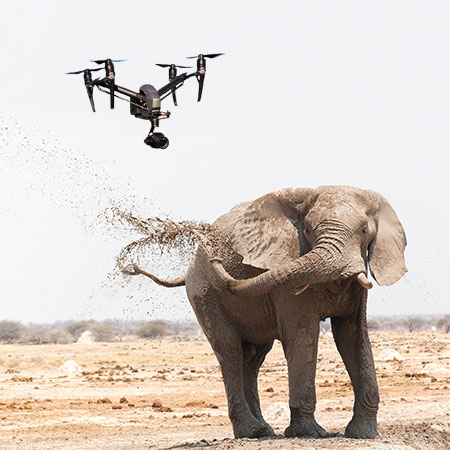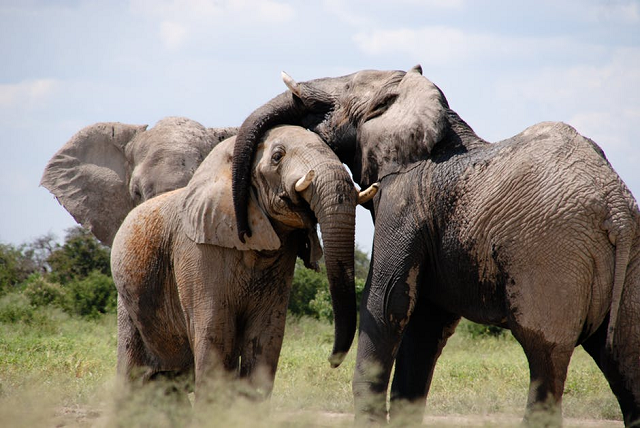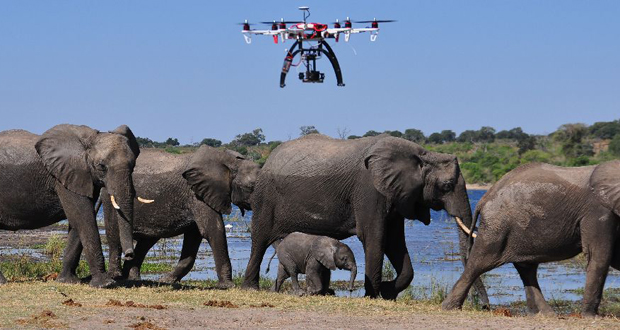
Only recently, researchers from Duke University goes to Gabon to see what’s behind the dwindling population of elephants in the country. They go with three drones, which they intend to use in counting the elephants, tracking their herds, and mapping their movements. Things, however, doesn’t go as planned as the elephants go crazy around drones.
Why Elephants Go Crazy Around Drones
The elephants realized the drones were nearby hovering around 25 feet to 300 feet above them and they went berserk. The elephants and other animals that noticed the drones were clearly agitated and some of them ran away. One particular elephant even used her trunk to hurl mud toward the drone as she had her baby with her.
Scroll down for video

Pixabay
The elephants reacted so aggressively because the drones’ blades created a sound very similar to the sound of the bees and elephants do not like bees—not in the least.
“Animals as powerful as the African elephant can go largely untroubled by predators,” Ed Yong wrote back in 2009. “Their bulk alone protects them from all but the most ambitious of lion prides. But these defenses do nothing against the African bees, which can sting them in their eyes, behind their ears and inside their trunks.”
For the researchers at Duke, the next thing to do is to evaluate how similar the bee buzzing and the sound of the drones actually are. What is it that ticks these animals off? Is it just the simple fact their sound reminds them of bees or is there something much deeper. These are some of the questions that researchers will be looking to answer. The team made use of the 3DR Iris+ model for their work in Gabon.
“We’re doing a frequency analysis of the sound of these small drones so we can figure out how similar they are and what can be done to mitigate the negative consequences,” said Cummings, Duke’s Robotics Club director.

Sanvada
Her team is also trying to see the practicality of making use of different types of drones, maybe smaller or larger ones that make softer or heavier noises, depending on the situation, or even emit different frequencies. The aim is for the devices to less likely “annoy the elephants,” Cummings said.
After this study, researchers will at least get to the bottom of issue of elephants and their agitation whenever they see drones and they can consequently find ways in which they can mitigate the effects these gps drone quadcopter have on them so their research can proceed accordingly.
Since elephants go crazy around drones, perhaps next time a solution would be implemented to ease the research.
Watch the video below